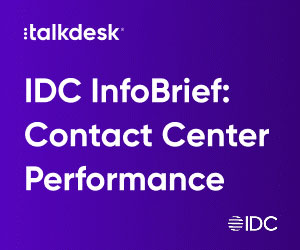Richard Mill of Business Systems takes a look at how Workforce Optimisation (WFO) contact centre technology can improve your ethical conduct and address the Financial Conduct Authority’s (FCA’s) conduct risk agenda.
The FCA has made it clear that its conduct risk agenda is designed to create a culture of good conduct and integrity across the financial services industry to ensure companies are doing the right thing by their customers at all times.
Conduct risk is a term used by the financial services industry to describe risks linked to the way companies and their employees relate to customers and the financial markets ecosystem. As a regulator, the FCA looks at the way financial services companies treats their customers and how they behave towards them.
The concept of treating customers fairly is an established part of theregulatory framework. The conduct risk agenda goes a step further. While there is no pre-defined template for the agenda, the FCA expects conduct risk management to be embedded firmly into companies’ risk management frameworks. This requires companies to develop their own conduct risk definition and strategy and review it on a regular basis and change it according to lessons learnt, regulatory expectations and operational re-structuring.
The FCA expects regulated financial services companies to focus holistically on conduct risk to ensure that both the organisation in question and financial markets function efficiently. This means that customers get financial services and products that fit their needs, that are transparent in terms of pricing and what is being provided. At the same time, financial services companies are expected to compete effectively with the interests of their customers and the integrity of the market at their epicentre.
The FCA’s conduct risk agenda centres around five key questions which companies must ask themselves and be able to respond formally with evidence to the regulator on. These include:
- What proactive steps are you taking to identify conduct risks?
- How do you encourage people in front, middle, back office, control and support functions to feel responsible for managing conduct?
- What support does your firm put in place to help your people improve their conduct?
- How does the firm’s board and executive committee get oversight of conduct – and how do people bring it in to their discussions?
- Has your organisation looked at any business activities it is engaged in that could be working to undermine your work in this area?
These questions have been created to look at how companies embed long term good business practice as well as how good conduct is included in their on-boarding programmes. But for many financial services companies it will require transformation to address them.
The FCA also expects companies to move away from certain behaviours. These include:
- Prioritising profits over ethics and commercial interests over consumer interests
- A tick box and over legalised view on compliance
- The notion that disclosure at the point of sale removes the seller from any responsibility in ensuring that products/services represent a good outcome for the customer and finally
- Complying with only the letter (rather than the spirit) of laws and regulations.
Where Call Centre Technology Comes In
The big challenge of such a conduct risk agenda is that companies need 360 degree visibility on quality assurance and service metrics in order to be compliant. Conduct has also proved difficult to monitor utilising traditional controls because there are varieties of misconduct. This is where workforce optimisation (WFO) solutions come into the equation.
Workforce optimisation (WFO) software has been developed to boost efficiencies, optimise customer satisfaction and productivity and, at the same time, manage costs. It is an established tool in front end operations such as contact centres, where it links real-time monitoring capabilities with quality monitoring and workforce management. It is also capable of automating manual processes, enhancing forecast accuracy and scheduling resources, while driving employee engagement.
All of these integration and automation facilities taken directly to the back office, provide the visibility required to maintain governance and service levels. These ingredients make WFO a perfect answer to helping financial services companies mitigate conduct risk.
The FCA’s aim in its agenda is to build a compliance culture and promote good behaviour across all aspects of financial services. Under such transparency it is hoped misconduct can’t survive. A truly flexible workforce optimisation platform is an invaluable tool for companies in accomplishing this.

Richard Mill
While WFO is known for monitoring and analysing agent performance, it also possesses the power to align behaviour with a standard such as the FCA’s conduct risk agenda and ensure that they are maintained at all times.
For many financial services companies, addressing the requirements of the FCA’s conduct risk agenda will require a shift in both culture and operations. WFO has huge potential in providing a solid, sophisticated compliance platform for financial services companies to adhere to the agenda.
Author: Robyn Coppell
Published On: 3rd Jul 2019
Read more about - Guest Blogs, Business Systems















